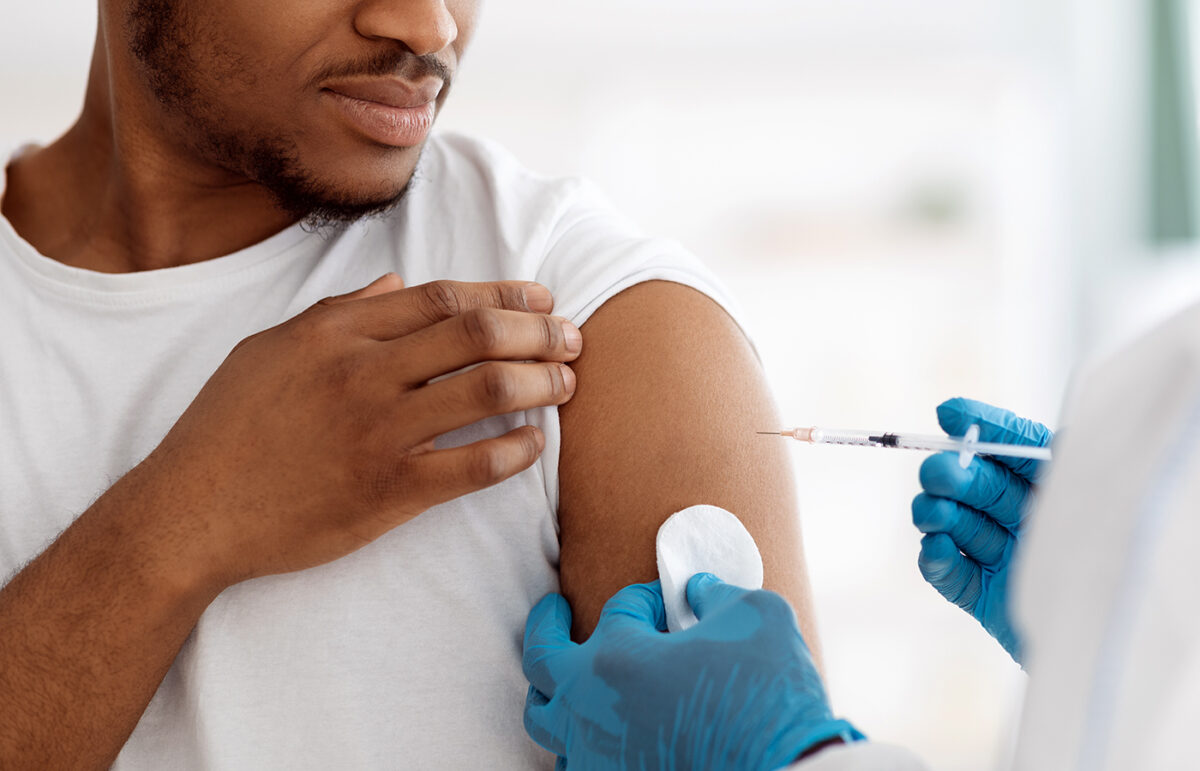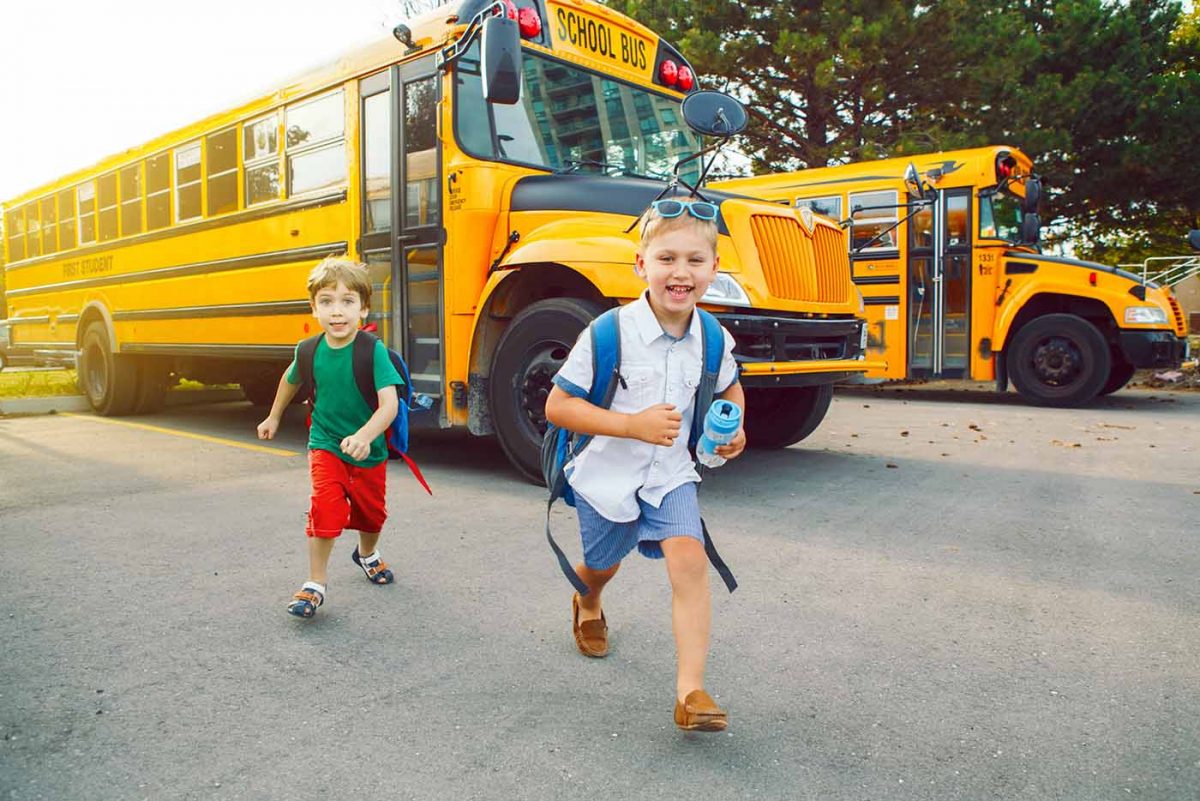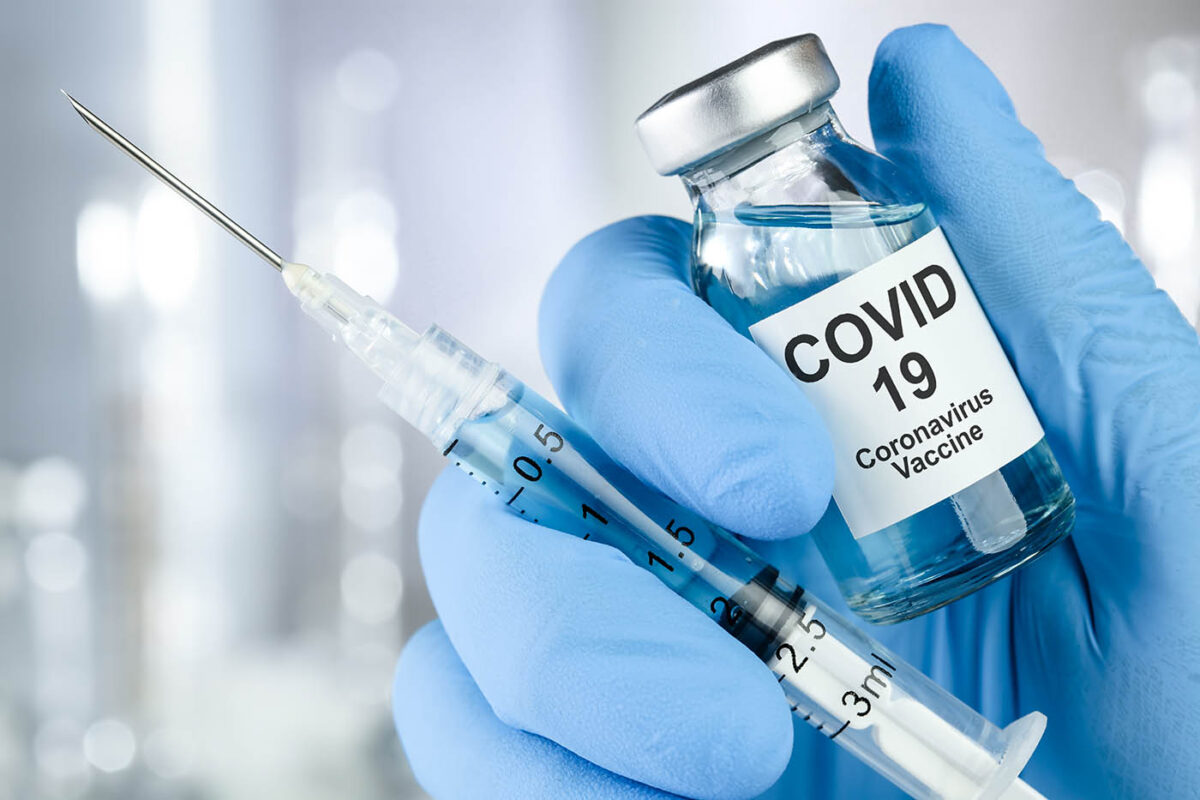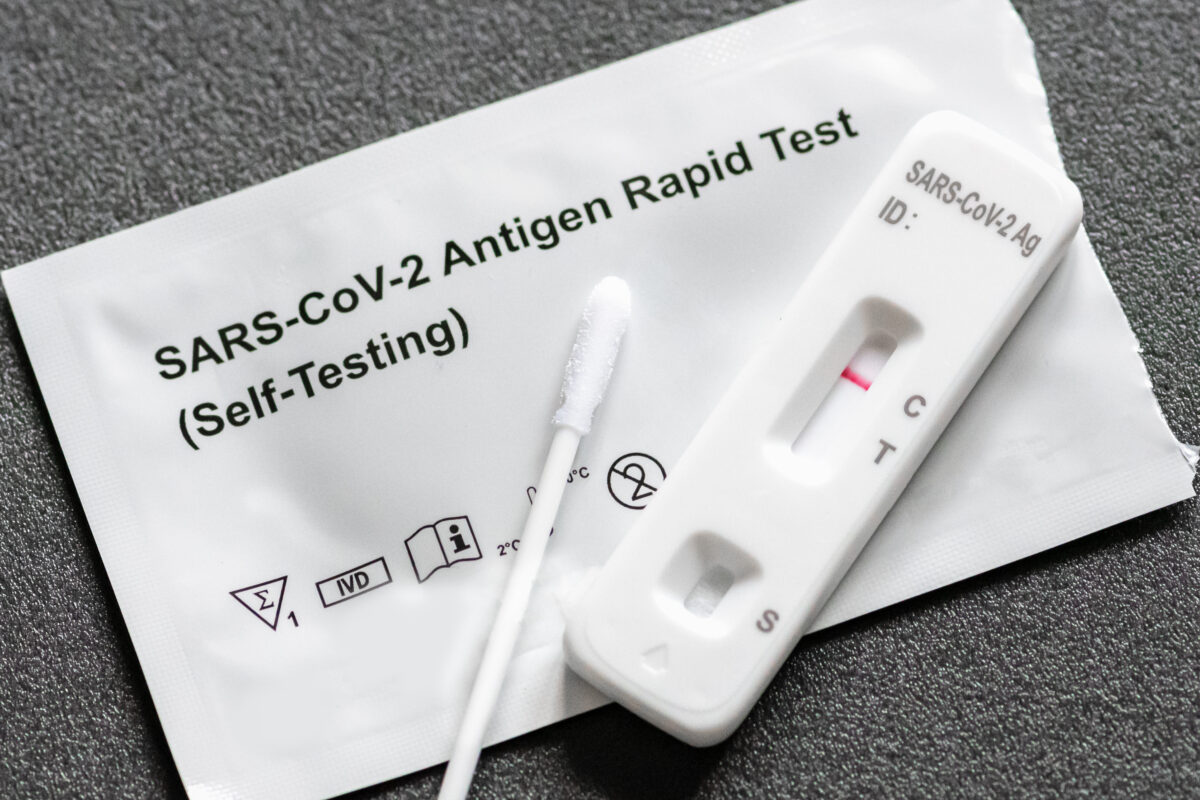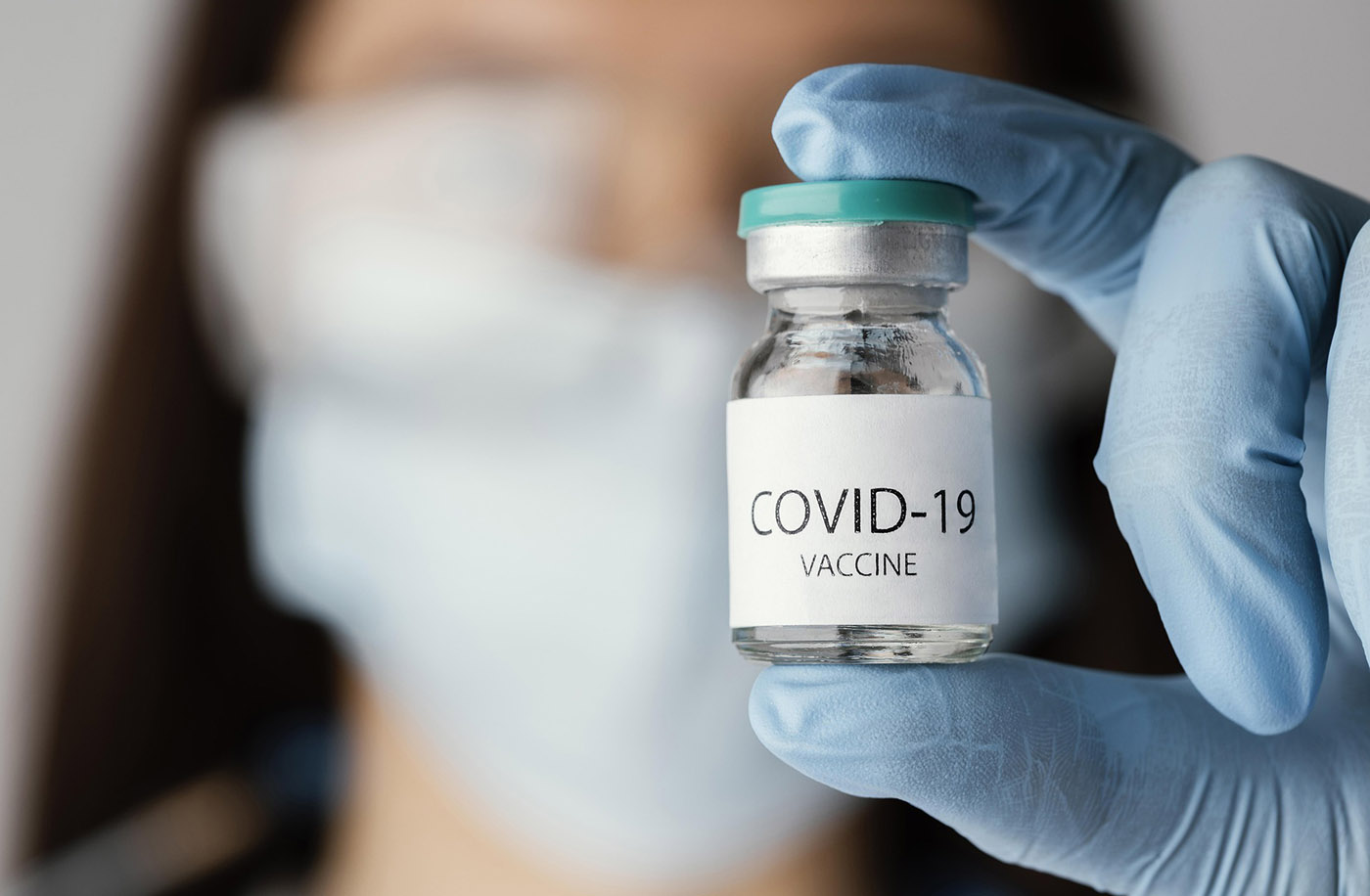
By the end of March, 46.7% of Arkansas adults reported having received at least one dose of the COVID-19 vaccine, putting Arkansas slightly below the national average of 47.0%, according to an analysis by the State Health Access Data Assistance Center (SHADAC) of the latest Household Pulse Survey (HPS).
In a ranking of all 50 states and the District of Columbia, Arkansas’s vaccination rate was roughly in the middle.
The experimental survey, conducted by the U.S. Census Bureau in partnership with seven other Federal Statistical System agencies, began in April 2020 in an effort to capture the experiences of U.S. households during the COVID-19 pandemic. The survey results are released every two weeks. Respondents are asked questions regarding the impact of the pandemic on their education, food security, employment, health, housing, transportation, household spending, social security benefits, consumer spending of stimulus payments, and COVID-19 vaccination intentions.
As HPS is an experimental, 20-minute online survey that is meant to provide near-real-time data to assist with state and federal response and recovery planning, the data may not meet all of the Census Bureau quality standards. For more information, view the source and accuracy statement for the latest survey.
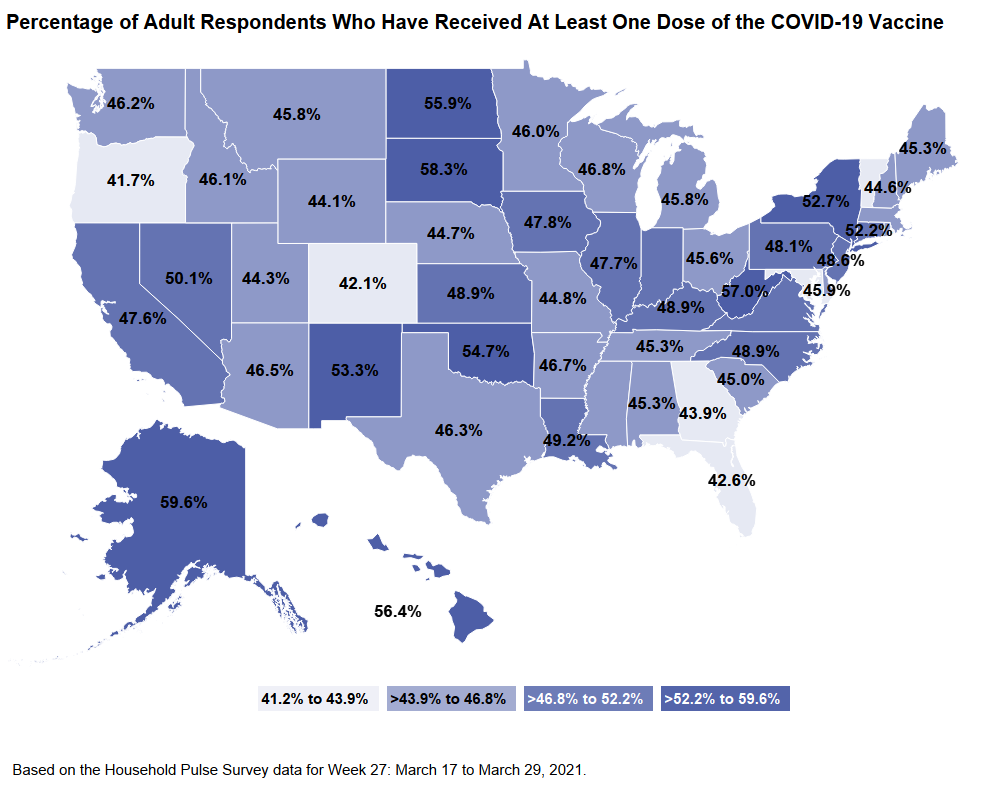
The SHADAC analysis found that state-level vaccination rates increased dramatically from the survey period of March 3 to March 15 to the survey period of March 17 to March 29, in varying percentages from state to state. Increases ranged from 5.7 percentage points in Vermont to 20.0 percentage points in New Mexico, with 12 states having increases of 15 percentage points or higher. In Arkansas, the percentage of adults who reported receiving at least one dose of the COVID-19 vaccine increased by 10.3 percentage points over that period.

Among adults age 65 or older in Arkansas, 78.6% reported having received at least one dose of the COVID-19 vaccine. Arkansas continued to trail behind the U.S. rate of 80.1% and ranked 31st among states. State-level vaccination rates for that age group ranged from 90.1% in Connecticut to 67.4% in Hawaii.
The analysis also found that there has been slow and uneven improvement in racial, income, and education-level disparities in vaccination rates among subpopulations in the U.S. Similar to previous weeks, the percentages of adults who reported receiving at least one dose of the COVID-19 vaccine are lower among Black adults (42.0%), other or multiracial adults (40.0%), Hispanic or Latino adults of any race (37.7%), very-low-income adults (33.3%), and adults with less than a high school education (29.0%).
According to the HPS COVID-19 Vaccine Tracker, an HPS data visualization tool created by the U.S. Census Bureau, 22.2% of Arkansas adults reported hesitancy about receiving the COVID-19 vaccine in the survey period of March 17 through March 29. This is higher than the nationwide rate of 15.6%. The percentage reflects adults who said they definitely will not or probably will not receive a COVID-19 vaccine when asked how likely they are to get a vaccine when it becomes available to them. The top three stated reasons for vaccine hesitancy in Arkansas are:
- Concerned about side effects: 52.1% (+/-17.1%)
- Plan to wait and see if it is safe: 47.6% (+/-16.0%)
- Don’t believe I need it: 35.6% (+/-17.8%)
The next HPS survey is scheduled to be released on May 5. Data collection for the survey began on April 14. It remains to be seen how vaccine uptake and hesitancy will be affected by changes to COVID-19 vaccine eligibility, which was extended to everyone age 16 and older in Arkansas on March 30 and in every state by April 19, and by the recent pause of the Johnson & Johnson COVID-19 vaccine ― factors which are not reflected in the most recently released survey.



